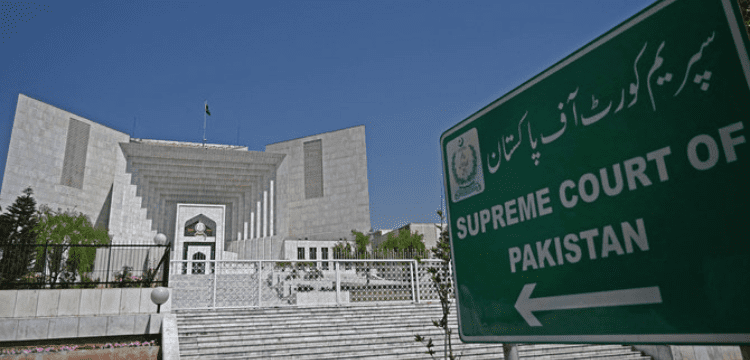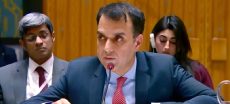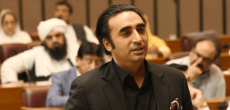[vc_row][vc_column][vc_column_text dp_text_size=”size-4″]ISLAMABAD: The Ministry of Defence, through Attorney General of Pakistan (AGP) Mansoor Awan, submitted a report to the Supreme Court (SC) on Tuesday outlining the availability of security personnel for election duties.
After reviewing the report, the Supreme Court is expected to rule on a petition filed by the Pakistan Tehreek-e-Insaf (PTI) challenging the Election Commission of Pakistan’s decision to postpone elections in Punjab until October 8.
The petition is being heard by a three-member bench led by Chief Justice of Pakistan (CJP) Umar Ata Bandial, which also includes Justice Munib Akhtar and Justice Ijazul Ahsan.
The case’s hearings, which lasted more than a week, were marred by high drama after two of the original five-member bench’s judges, Justices Jamal Khan Mandokhail and Aminuddin Khan, recused themselves from hearing it. Following that, the chief justice convened a bench comprised of himself, Justice Ahsan, and Justice Akhtar to hear the PTI petition.
Read More: News attributed to PM regarding election not true, Marriyum Aurangzeb
Previously, the government had submitted a statement through Pakistan’s Attorney General, Mansoor Awan, requesting the formation of a full court to hear the case. It also requested that the PTI petition be dismissed in light of what it interpreted as a “4-3” order issued by the Supreme Court on March 1.
Earlier in the day, the Supreme Court bench appeared irritated by the government’s declaration of ‘no-confidence,’ and thus refused to hear the arguments of the ruling parties’ lawyers before reserving the verdict.
Akram Sheikh, a lawyer for the Pakistan Muslim League-Nawaz (PML-N), stated that he appeared before the Supreme Court to assist it. He claimed that if a party asked him to support something illegal, he could make his own decision. The lawyer went on to say that he had the utmost respect for the Supreme Court.
The chief justice expressed admiration for Sheikh, Farooq H Naek, and Kamran Murtaza. The ruling parties, however, have expressed their dissatisfaction with the three-member bench hearing the case.
He also stated that Sheikh was not appearing in court on his own behalf, but rather on behalf of a political party.
Furthermore, Justice Akhtar stated that the lawyer’s power of attorney was not filed in a personal capacity, and that the government’s position was relayed to the court by its staff via a statement shared on the PML-Twitter N’s account.
During the hearing, the CJP stated that the SC relied on the harmony of its judges. While judicial proceedings were made public, he observed that consultations among judges were considered internal matters.
Justice Akhtar, on the other hand, stated that if the “logic behind the 4-3 verdict” is accepted, the case will be referred to the same nine-member bench that was originally formed to hear the elections suo motu proceedings. He went on to say that the decision would then be made by either the five-member or nine-member benches.
Justice Bandial pointed out that the judges’ dissenting notes made no mention of the bench’s reconstitution.
Earlier in the hearing, the court ordered the defence secretary to submit a classified report explaining why the armed forces are unable to perform security duties in general elections for provincial assemblies.
Hasty decision unacceptable
Law Minister Azam Nazeer Tarar warned the National Assembly the day before that the government will not accept a hasty decision by the Supreme Court on a sensitive and important issue.
The law minister stated that the entire country was awaiting the top court’s decision and that any hasty decision on such a sensitive issue would be rejected.
He also requested that President Arif Alvi sign the Supreme Court (Practice and Procedure) Bill 2023, which seeks to limit the chief justice of Pakistan’s suo motu powers (CJP).
Tarar introduced the bill in the lower house of parliament on March 29. The Senate, or upper house, approved it the next day. According to a copy of the bill, the new draught law, which has been sent to the president for approval, limits the chief justice’s authority to form panels, hear appeals, and assign cases to judges on his team.
The government is currently at odds with the Supreme Court over the holding of snap elections in two provinces where PTI chief Imran Khan dissolved local governments earlier this year in an attempt to force early elections.
The government says it is economically not viable to hold snap elections first and then have general elections again this year.[/vc_column_text][/vc_column][/vc_row]











